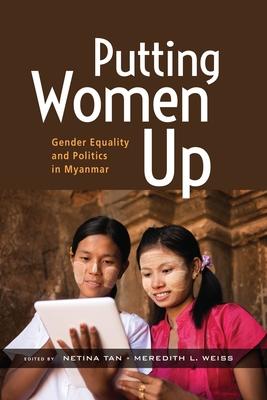For the duration of Myanmar's experiment with electoral democracy, why did some women run for political office, and not others? What role did gatekeepers such as party leaders play in those decisions, and using what criteria in selecting candidates? How did experience of domestic violence or harassment affect women's likelihood to participate in politics, especially beyond the local level? And what implications might these earlier patterns have for a post-coup Myanmar, should meaningful elections be restored?
The contributors to Putting Women Up: Gender Equality and Politics in Myanmar answer these questions by examining the internal politics of nine political parties in Myanmar and both men's and women's attitudes towards and experiences of political leadership. Drawing on extensive interview, survey, and focus-group discussion data collected from across Myanmar in 2017 and 2020, this book offers a mixed-methods approach to explain how factors from party rules to formative personal trauma to patriarchal biases to ethno-religious context shape women's and men's likelihood to join local and national politics. The findings expand on culturalist insights on gender inequality to provide context-sensitive, evidence-backed policy recommendations to promote women's political leadership, despite militarization and violence in post-coup Myanmar.
